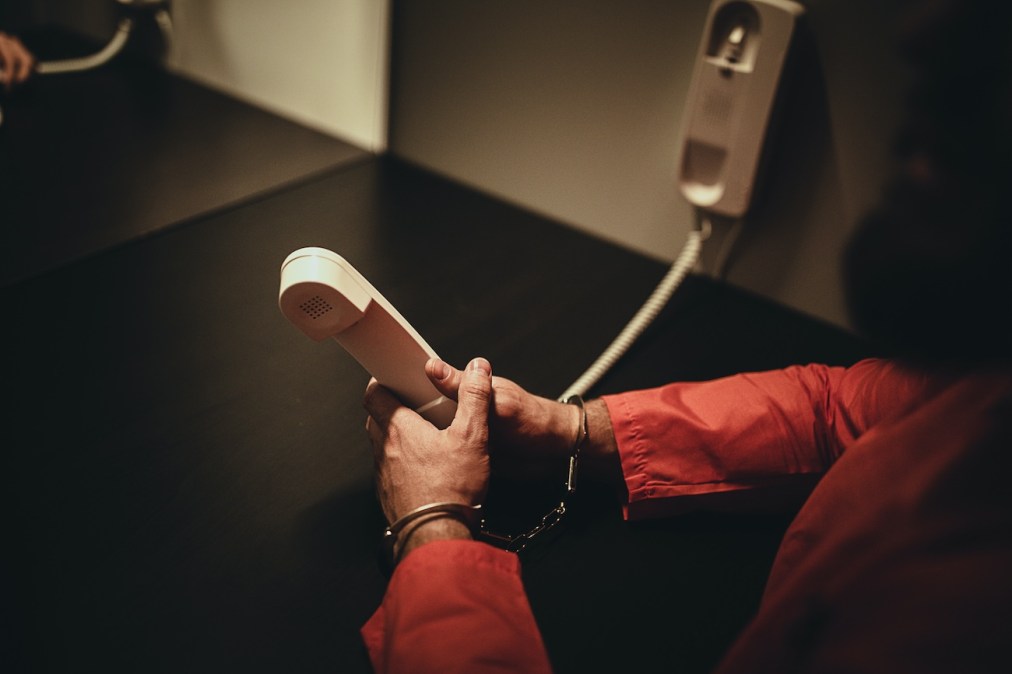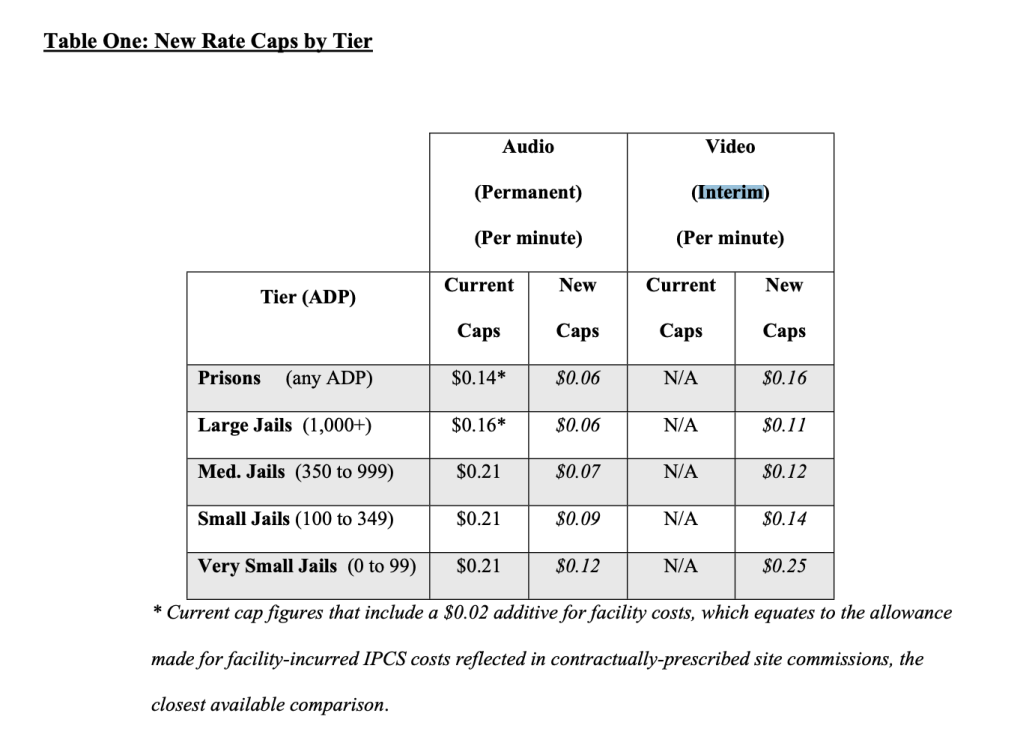FCC to cap phone, video call rates for incarcerated people

On Friday, the Federal Communications Commission plans to publish final rules capping the rates that service providers can charge incarcerated people for making phone and video calls from correctional facilities.
The rules, which the FCC passed by vote in in July, apply to all incarcerated people’s communication services, including in-state, out-of-state and international calls. The new rules are set to take effect 60 days after Friday’s publication.
The rate caps are broken down by institution size and type. Prisons, and jails with populations of at least 1,000, will be capped at $0.06 per minute for audio calls, compared to the current cap of $0.14 per minute and $0.16 per minute, respectively. New rates for “medium” to “very small” jails range between $0.07 and $0.12 per minute, compared to the current cap of $0.21.
Video calls are more expensive — they will be capped at $0.11 per minute for large jails, and $0.25 for “very small” jails. According to the FCC, there are no current caps for video calls.
The per-minute caps for audio calls are permanent, while per-minute rate caps for video calls are subject to change.
The new rules also prohibit service providers from imposing additional charges, ending the “long-standing practice,” according to the FCC, of providers making site commission payments to correctional facilities, the costs of which were passed through to consumers via higher per-minute rates.

The new rules also impose strengthened accessibility requirements on call providers serving incarcerated people with disabilities. They require that all services and equipment to make calls are usable by people with disabilities.
During an FCC listening session that informed the rulemaking, one participant explained how high service rates at times force incarcerated people to choose between basic necessities, like food, and contact with their families.
“Kim Thomas, a formerly incarcerated person, explains how incarcerated people earn ‘about 15 cents an hour…. So if you calculate that out, it’s not very much money, and you choose to make a phone call or buy soap,'” the rules read. “Incarcerated people with disabilities that impact their ability to communicate continually experience barriers to access because ‘prison administrators fail to understand their communication needs.'”
The new rules follow legislation President Joe Biden signed into law last year, the Martha Wright-Reed Just and Reasonable Communications Act, which gave the FCC authority to set caps on call rates. The commission had attempted for several years to impose restrictions on the call rates, but those efforts were repeatedly blocked in court.



